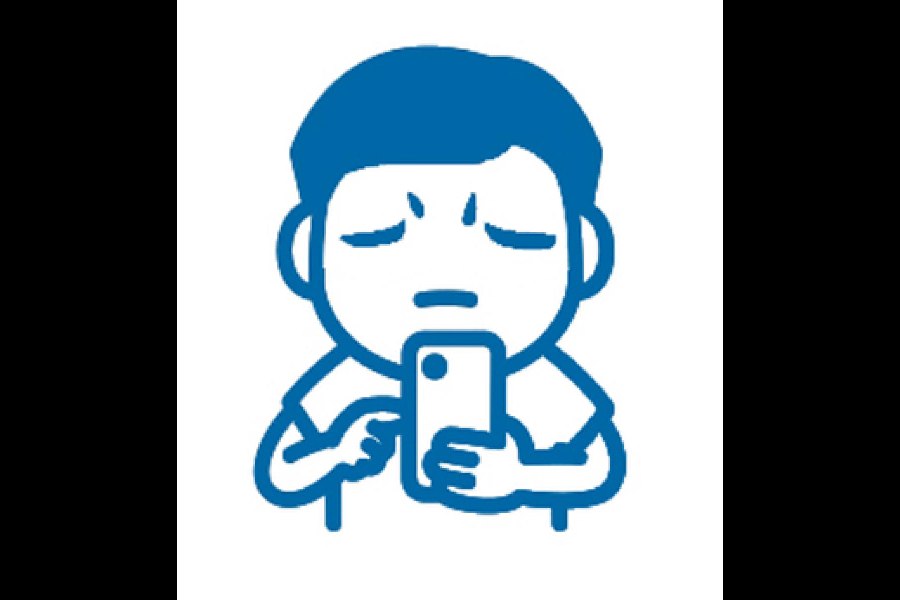A student of Kendriya Vidyalaya in Ghaziabad drew attention to herself when she suddenly began struggling with her studies and missing her classes last year. A mobile, retrieved from her by the principal, provided clues to the malaise plaguing this generation — excessive use of phones.
Jyoti Pandey, then principal of the school, examined the student’s phone and confronted her. It was revealed that she had befriended a few people on Instagram and had fallen victim to a “dangerous trap”, Pandey said.
“Bringing mobile phones to school is not allowed, but the student flouted the rule. She wasn’t able to focus on her studies. I realised that phone addiction and shady online acquaintances were distracting her. There were other similar cases, too. I decided to take strong measures to check Internet use by students. I spoke with parents and got a declaration signed by them that they would not provide mobiles to children at home. If needed, students can use the Internet only under parental supervision,” Pandey, currently the principal of Kendriya Vidyalaya, Vasant Kunj, told The Telegraph.
The school deleted all WhatsApp groups for students and started distributing homework on printouts. It started using its own messaging service app as a communication platform for parents, students, teachers and the school administration. The school also began organising field visits, vocational training, art workshops and cyber safety talks. The KVS student exemplifies how online predators exploit mobile and Internet addiction to target vulnerable and impressionable minds.
Niti Aayog, India’s official think tank, recently released a working paper titled “Online Safety for Children: Protecting the Next Generation from Harm”, highlighting how children are being exposed to cyberbullying and Child Sexual Abuse Material online.
The paper quoted official data from the National Crime Records Bureau to state that cybercrime against children rose from 1,381 in 2021 to 1,823 in 2022, an increase of 32 per cent.
Approximately 20 per cent of children face bullying through social networks, and an additional eight per cent through video game chat rooms. With billions of videos and websites on harmful content populating the Internet, it’s not unusual for kids to stumble upon explicit or distressing content while browsing.
Social networking sites and chat platforms are the hunting grounds of predators who can put children at significant risk of abuse, exploitation and other threats to their safety and security, the paper said.
The paper recommended that parents should create strong passwords, limit screen time for children, ensure that children only visit age-appropriate websites, turn on SafeSurf settings, turn off location services in all apps and keep cameras and webcams covered when not in use.
The paper mooted stronger laws to protect children online, including enforcing age verification measures, holding tech companies accountable for the content shared
on their platforms, and providing resources for parents and children to learn about online safety.
Pandey said children with access to mobiles and laptops often tend to deviate from study and explore unwanted websites and apps. They create WhatsApp and Instagram groups and exchange harmful content that involves bodyshaming or bullying, she said.
“Body shaming or bullying is a common adolescent problem, but it was earlier limited to physical spaces. Now, it’s pervasive online,” Pandey said.
The principal said 99 per cent of children using the Internet unsupervised were not safe. “They become aggressive and depressed. They get addicted to chatting and partying. Unfortunately, some even get hooked to tobacco, liquor and drugs,” Pandey said.










